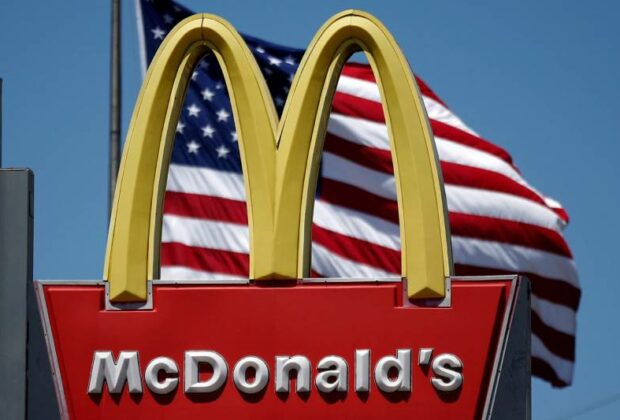McDonald’s has reported its steepest decline in U.S. sales since the COVID-19 pandemic, with like-for-like revenue in domestic outlets falling by 3.6% in the first quarter of 2025. The slump underscores growing consumer hesitation amid persistent economic uncertainty and inflationary pressure.
Despite aggressive promotional campaigns—including a marketing collaboration with the upcoming Minecraft movie and various value deals—U.S. customers made fewer visits to the fast-food chain compared to the same period last year.
US Economic Backdrop
This unexpected downturn coincides with a 0.3% contraction in the U.S. economy during the same quarter, marking the first economic shrinkage since 2022. President Donald Trump, in his early months back in office, has urged Americans for patience and attributed current challenges to what he termed “the Biden economy.”
Financial experts say households—especially low-income ones—are feeling the pressure. Danni Hewson, head of financial analysis at AJ Bell, commented that Americans are “cutting back on discretionary spending” and bracing for further financial strain due to inflation and fears of potential job losses.
Global vs. Domestic Performance
While McDonald’s global operations in countries like Japan, Australia, and the Middle East showed sales growth, the downturn in the U.S. market dragged global like-for-like revenue down 1% for the quarter.
CEO Chris Kempczinski acknowledged the challenges, noting that “consumers today are grappling with uncertainty,” but emphasized the brand’s long-standing commitment to value and adaptability:
“McDonald’s has a 70-year legacy of innovation, leadership, and proven agility… giving us confidence in our ability to navigate even the toughest of market conditions.”
Impact of Trade Policy and Tariffs
Much of the economic anxiety is being fueled by the new wave of tariffs announced by President Trump, including a major batch on April 2, dubbed “Liberation Day.” These tariffs have triggered mixed reactions across industries.
Major companies like Intel warned that costs and recession risks could rise, while Adidas signaled potential U.S. price hikes on popular sneakers like the Gazelle and Samba. DHL temporarily halted deliveries over customs rule uncertainties before negotiating terms.
Although the Trump administration argues that tariffs will lead to more domestic jobs, many economists suggest that short-term economic pain—including reduced consumer spending and corporate cutbacks—is more likely.
McDonald’s current struggles reflect broader consumer sentiment in the U.S. as economic challenges mount. With fears over inflation, employment, and trade tensions on the rise, companies across industries are bracing for a turbulent 2025.




